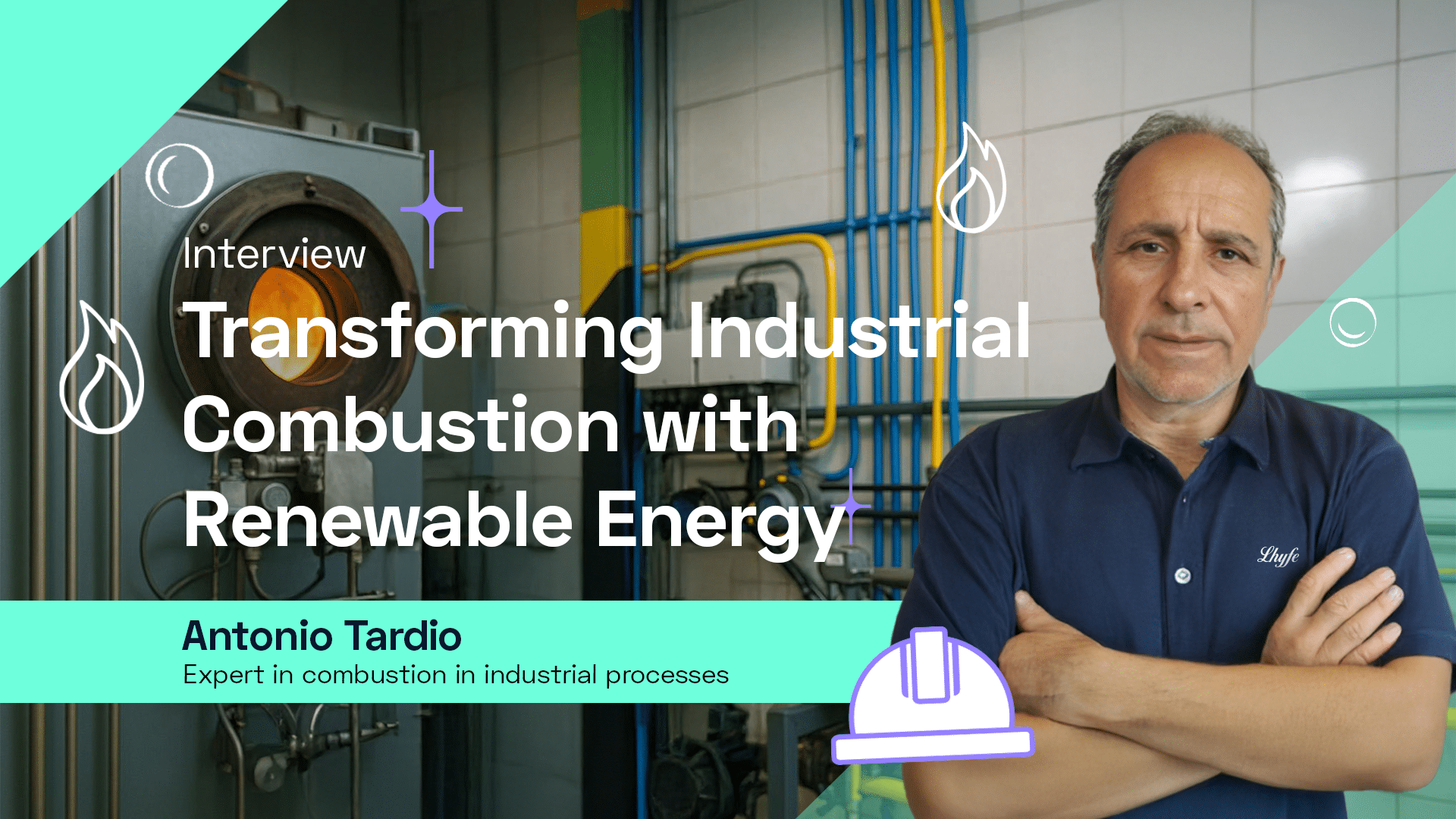Published the 07/07/2025

Hello Antonio, can you introduce yourself and describe your role at Lhyfe?
My name is Antonio Tardio, I’m a member of the Lhyfe Spain team. I’m an expert at Lhyfe in combustion processes for industries that currently rely on fossil fuels - natural gas (CnHm) – to reach high temperatures ranging from 400°C to 1550°C.
I joined Lhyfe to start the journey towards decarbonizing industries that use fossil fuels. Following the industrial testing with a producer, we have confirmed that hydrogen can indeed be used as fuel. What was once theoretical is now backed by solid data proving hydrogen’s suitability for combustion.
What would you say are the main advantages of hydrogen as a fuel compared to traditional options?
The primary objective is decarbonisation, as industries currently rely on fossil fuel gases and aim to reduce CO₂ emissions while enhancing energy efficiency.
Are there any myths or misconceptions about hydrogen you’d like to debunk?
Let’s break the myth: renewable hydrogen is a safe, clean, and technically manageable fuel in constant evolution.
Renewable hydrogen is the solution to replace natural gas in industrial heat processes. It’s a clean solution with zero CO₂ emissions, a combustible gas with ideal physicochemical properties for safe and efficient use. We must debunk concerns about production and final cost—environmental impact must be considered. Humanity cannot continue emitting CO₂ at current levels.
Technological advances now allow onsite production of renewable hydrogen, and Lhyfe has experts to evaluate each case.
What is the role of hydrogen in combustion?
Renewable hydrogen is the solution for replacing fossil combustible gases like natural gas in industrial processes, including automotive (which also involves combustion), helping to decarbonise emissions and meet environmental regulations.
What are the main differences between hydrogen combustion and traditional hydrocarbons (natural gas, gasoline, etc.)?
- Zero CO₂ emissions during combustion
- Possibility of onsite hydrogen production
- Reduced dependency on natural gas supply and the global energy market
- Full compliance with environmental regulations
- Higher heating value (LHV = 33.33 kWh/kg) than fossil gases by mass
- Stoichiometry: lower volume of air or oxygen required compared to fossil gases
- Relative density: ratio of hydrogen mass to air
- Flame temperature: higher than that of natural gas
- Mature combustion technology, fully manageable with commercially available equipment
- Well-known and fully controlled safety
Do you think hydrogen can completely replace fossil fuels in some sectors?
In the short and medium term, I see 100% renewable hydrogen, as well as mixed with natural gas.
What makes you proud to work at Lhyfe?
Lhyfe stands out because we’re not just talking about renewable hydrogen — we’re producing and delivering it. While many players are still in the pilot or planning phase, Lhyfe has already launched real-world projects and is actively supplying renewable hydrogen across Europe. Our ability to scale — from local distribution to pipeline supply — shows we’re not experimenting; we’re executing.
What really sets us apart is the combination of end-to-end capability: from electrolyser integration to combustion process engineering, to safe and efficient control systems. This vertical expertise lets us provide tailor-made decarbonization solutions for industrial clients — not generic products, but smart systems optimized for real operational demands.
We’re driving the transition forward by bridging deep technical knowledge — like combustion equipment design and process control — with a full renewable hydrogen supply chain. That makes Lhyfe a true enabler of decarbonization, not just a hydrogen producer.

